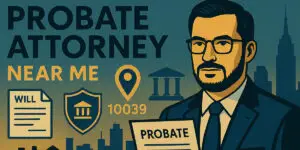Best Estate Planning For Your Bitcoin
Rather than remembering such detail for your will, then, at that point, you want to likewise make a notice to go close by it. There are a couple of benefits to this sort of authoritative archive. First, it’s a different report planned to keep up with protection, so it doesn’t become essential for freely available information.
You want to incorporate all the data your friends and family need to get to your bitcoin in your plan. This could be the area of your equipment wallets, your pin, reinforcement seed, and so on.
If you utilize an advanced wallet on your cell phone or PC, remember to incorporate login data into these gadgets. Additionally, consider whether or not your recipient has functioning information on digital forms of money. Finally, you might need to simplify it for them by including a bit-by-bit manual for getting to your crypto-abundance.
What happens to your bitcoin when you pass might be a calming thought. However, if you need your grandchildren to partake in your assets long later, you’re gone; it merits pondering it over.
FAQ
1. What is Medicaid fraud?
Medicaid fraud is simply false information to get Medicaid to pay for all the services needed for yourself or someone else.
2. What is a pour-over will?
A pour-over Will is a Will written document stating the actions needed to be done through the trustee, which will be transferred to them. The truster is responsible for many assets to be taken care of or sent to assigned beneficiaries.
3. When someone dies, does their debt go away?
No, when someone dies, if that person has any debt, creditors will still ask for the money back, adding more credit to the accounts. After the designation of the person’s assets during court, payment of debts will also be announced to whoever the court would call responsible. So a family member, spouse, or close friend will continue to pay everything you owe, so you should make an estate plan to prevent this sort of conflict.
4. Does a trust protect assets from a nursing home?
Yes, as long as you transfer funds towards your rent, mortgage, or assisted living instead of a nursing home.
5. Does transfer on death avoid probate?
The transfer of death only makes the probate process much more difficult by having you provide additional details and the reason for the transfer. This makes the process longer, and it’ll be more expensive if it’s longer. The only way to avoid probate is through a trust because everything would be set up or planned, especially the transfer of death.
6. What does an elder care attorney do?
An elder care attorney has the expertise in arranging any necessary goals for whoever the elder being served needs. It can go along with not just estate planning but also medical care proxies, elder abuse, or dealing with ownership of spousal belongings. This is all regards to any senior over the age of 50.
7. If my spouse dies, do I get his social security and mine?
Because of the laws of Estate Planning, there’s something labeled the surviving spouse clause, where if one spouse dies, the surviving spouse gets their assets. The only assets not provided would be government funds that the spouse still owes or would lose the entire thing because of labeled ownership unless there’s a Will stating rights to owning these finances.
8. How do I know if my unemployment claim was approved in NY?
After applying for unemployment at the official NY government website, ny.gov, you should receive a letter towards your home address two weeks after applying stating how much unemployment you should receive. However, that’s if you get approved. If not, you would receive the same letter in the same amount of time saying you’re ineligible due to certain dynamics in your life that the government won’t give you many benefits.
9. Do you need a lawyer for advance directives?
These forms can be created by yourself as long as you are over 18 but have the same disadvantages as handwriting your own Will. This means that advance directives shouldn’t be handwritten to prevent future fallacies due to not being able to read the file or putting information that has nothing to do with what’s needed. So you can make your advance directives, but it’s recommended to get a lawyer to guide you in the process.
10. Does a trust override a will?
No, a trust has different functions than a Will, but a trust secures the Wills needs for whatever is listed.









